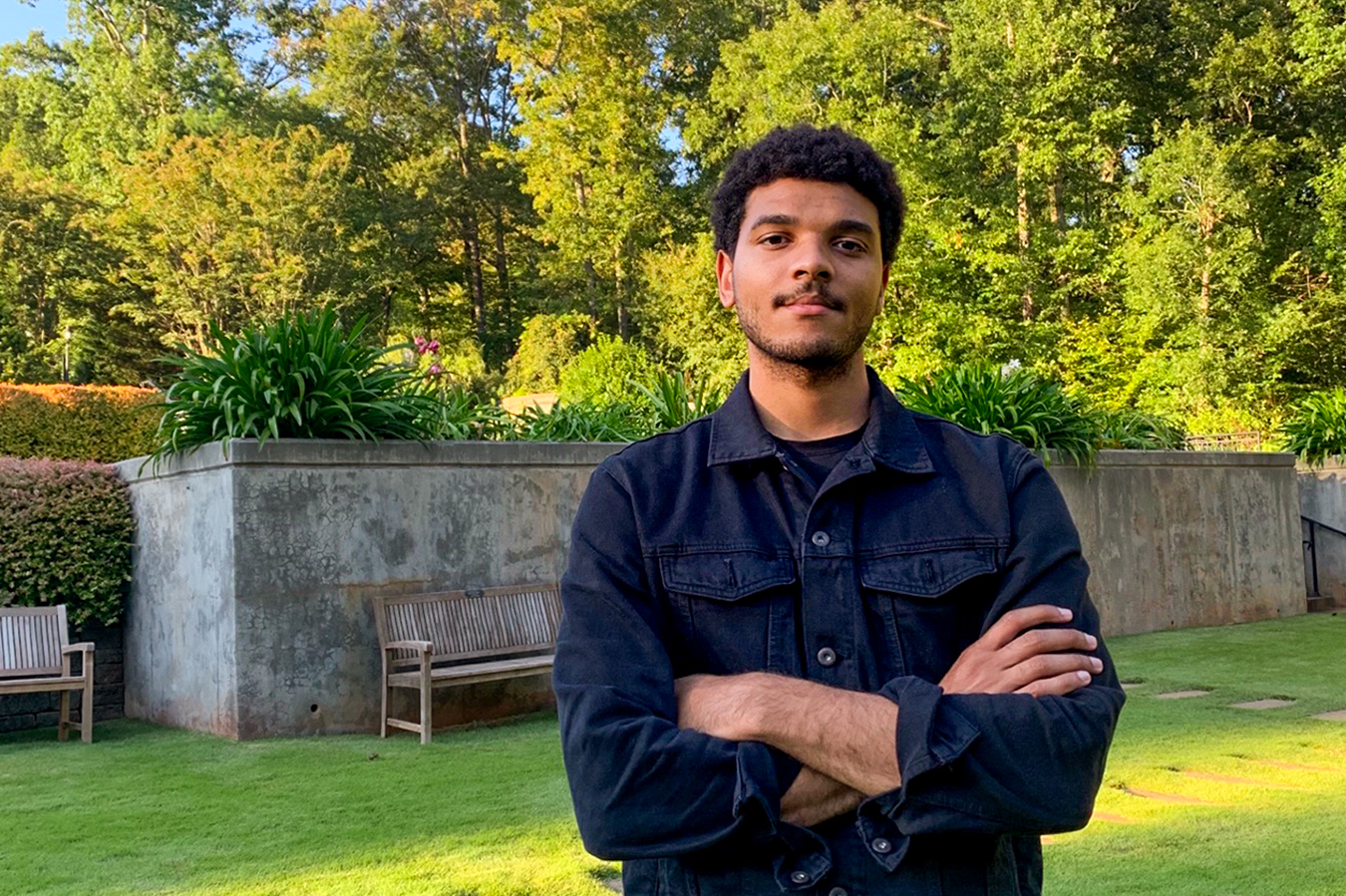
Alumni Spotlight: Understanding Bacteria Through Bioinformatics
January 24, 2022
“We worked to understand the structure of non-coding RNA, known as circular RNA,” Legall shared. “At the time, these structures were discovered to be enriched in mammalian brain tissue, so there was some hope that they would provide insights into neurological abnormalities.”
Using bioinformatic software, coding, and preliminary statistic analysis, Legall searched for the connection between circular RNA formation and how DNA sequences were constructed.
Now, he is pursuing a PhD at the University of Georgia’s Institute of Bioinformatics, where he uses computer science, math, and statistics to analyze biological data—specifically, bacteria.
“The big picture view of my research is focused on using bacterial pathogen DNA extracted from wildlife to understand how the bacteria can infect multiple host species,” said Legall. “This is an interesting question to tackle, because many diseases that spill over into human populations, like the infamous SARS-CoV-2, originally circulate in wildlife.”
“Understanding the genomic changes in the pathogen that lead to general infection could provide great insight on how to mitigate disease.”
Legall expects to complete his graduate work later this year and has recently accepted an internship at renowned bioinformatics company Illumina, which applies innovative technologies to genetic analysis.
We caught up with Legall to learn a little more about his interest in bacteria, his future goals, and his advice for other CSS scholars.
What are your future goals with your research?
After reading and learning so much about bacteria, I think you can say I’m hooked! I want to spend the rest of my career using bioinformatics to analyze all types of bacteria in the world. There are species of bacteria that can do all types of things, ranging from producing biofuels to decomposing plastics. Over the next five years, I want to utilize the skillset that I’ve been honing since working with Dr. Marzluff at UNC to tackle the serious problems that the world is facing—namely climate change and reducing greenhouse gases. I am planning to apply to post-doc labs that work with photosynthetic microalgae that could hold promise as tiny little factories for sustainable molecule production. If my research is successful and has high impact, expect for me to be a start-up founder and apply my findings to society.
How is graduate school different from your undergraduate experience?
As a graduate student, I would say that now I have a much better appreciation for the scientific method. A lot of my work is based on asking questions and finding appropriate answers—but this is continuous, and there are no clear stopping points to research. I guess there is just so much we don’t know in the world! Something else that is shocking is the amount of freedom I have in order to pursue questions. All that freedom early on is pretty scary if you aren’t used to it. I have the freedom to both succeed and fail, but it’s an exhilarating feeling to work hard and see that because of your work, the world knows something it didn’t quite know before.
What advice would you like to share with current and future scholars?
For first- or second-year scholars, find ways to get out of your comfort zone and really take advantage of the opportunities that UNC has to offer! Whether it’s through some type of club or volunteerism in the community, there are a bunch of ways to engage with the UNC community. Also, doing research or discovering what scientific questions are really interesting to you is a great use of time. I remember doing bioinformatics my first year and just being so excited to learn more; seven years later, I don’t regret a thing.
As for third- and fourth-year students, you have more college time behind you than in front of you. My advice to you is to really enjoy your friends and time together as much as possible. This can take the form of travelling to the beach, going to football games together, having a movie night once in awhile. I guarantee when you look back on your time at UNC you won’t remember all the papers you had to study for, but you will remember the quality time you spent with friends.
